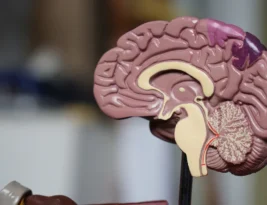Learn how to identify narcissistic traits in your brother with this step-by-step quiz. Protect your emotional well-being today. …
Blog Posts
Identify narcissistic eyes with 7 key signs, including intense stares, emotional voids, and manipulative gaze patterns. Learn how these traits reveal behavior. …
Understand covert narcissist post-breakup behaviors like silent treatment, smear campaigns, and hoovering. Learn why they act this way and how to protect yourself. …
Unmask female narcissists over 50 with these essential recognition strategies. Aging narcissists use distinctive manipulation tactics—learn to protect your boundaries today. …
Discover 7 facial tells that expose narcissists—contempt smirks, predatory stares, and micro-expressions revealing hidden arrogance. …
Understand high-functioning narcissists, their traits, and behaviors. Learn how to identify them and protect your emotional well-being in relationships and work. …
Understand the traits of a neglectful narcissist, their impact on relationships, and how to set boundaries. …
Do Narcissists’ Black Eyes Reveal a Disturbing Secret? …
The Science Behind Crafting the Perfect Yellow Rock Reply (It's Easier Than You Think!) …
Identifying Subtle Manipulations and Impact of Covert Narcissistic Sister on Family Dynamics …
Navigate office challenges with a narcissistic coworker using practical strategies for boundaries, stress management, and team well-being. …
Exploring the Narcissism and Dementia Connection through recent studies. Understanding how narcissistic traits may relate to cognitive aging and decline. …
Wondering 'Is My Wife A Narcissist'? Learn key signs of narcissism in marriage and what to do if you suspect your wife has narcissistic traits. …
Is my boss a narcissist? Spot key signs like lack of empathy, credit stealing, and constant need for praise to protect your well-being at work. …
Things narcissists say in an argument include gaslighting, blame-shifting, and emotional invalidation. Spot these phrases to protect your boundaries. …
How do narcissists feel when you move on? Expect reactions like anger, jealousy, blame, or relief, all rooted in insecurity and loss of control. …













